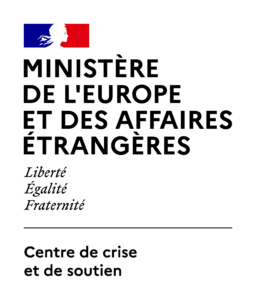PHASE II - Contributing to a safer Sinjar by conducting explosive ordnance clearance and risk education through the capacity strengthening of the local NGO SHO
Irak et Kurdistan Irakien
The Sinjar district in Ninewa Province was severely impacted by the Daech occupation, starting in August 2014, and the subsequent war of liberation until October 2017. This is due to the ethnic make-up of the district, which is home to the world’s largest Yezidi community. The majority of Sinjar’s diverse population fled the fighting in the direction of Iraqi Kurdistan. Today, around 140,000 of the district’s inhabitants still live displaced in the Dohuk district alone. The year 2020 saw a significant increase in returns, and an agreement on the governance of Sinjar signed between the Kurdish authorities and the central Iraqi authority, raising hopes of a growing return of these populations. Nevertheless, as a result of three years of war, the Sinjar district suffers from high levels of explosive contamination, which could pose a long-term threat to civilian populations. It is therefore urgent to ensure that the population adopts safe behaviours in the face of explosion risks, and that the contaminated land in Sinjar is cleaned up.
Objectif
Identify areas contaminated by explosive remnants of war, then clear the land by supporting the local capacity and activities of a local NGO (Shareteah Humanitarian Organization) with expertise in mine risk education and mine clearance.
- Providing education sessions on the risks of explosive devices, using media appropriate to gender and age
- Identify new contaminated areas or cancel out areas previously identified as hazardous by the non-technical survey
- Mobilise and train a third team of deminers
- Clean up confirmed contaminated areas and monitor the destruction of any explosive devices found
- Ensuring internal quality assurance and control
- Carry out and reassess the SHO mine action capacity gap assessment
- To provide ongoing mentoring for SHO's technical staff
- Developing documentation for SHO's support functions, providing training accordingly and monitoring its implementation
- 8'880 direct beneficiaries of EORE sessions and 78'007 beneficiaries of clearance activities
- 12 months (02/2023 - 02/2024)
- 1 708 221 €
Our local partner:

Our financial partner:

HAMAP-Humanitaire Contacts
François ROPARS : francois.ropars@hamap.org
Zakaria ABBIOUI : zakaria.abbioui@hamap.org